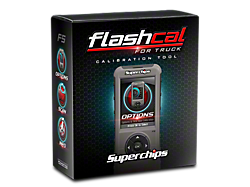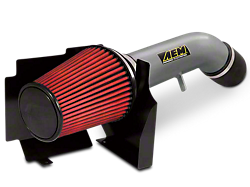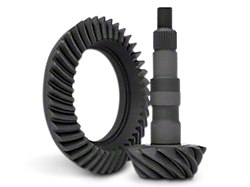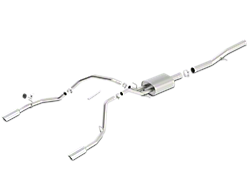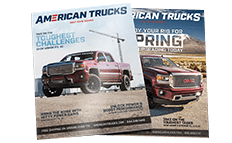How Do Electronic Tuners Work?
Electronic tuners work in conjunction with your electronic control unit (ECU) to adjust different electronic procedures in your vehicle, including its throttle response or fuel-to-air ratio. Tuning a vehicle will affect many different components, including throttle position, ignition timing, ignition spark, and fuel injection.
Tuning your throttle response involves working with what’s called a throttle map. This is essentially a computer code that monitors different variables of your throttle response, including throttle position and engine load. In layman's terms this is most often used to adjust throttle position, or how much your throttle butterfly must open and close depending on acceleration. This will also affect the fuel-to-air ratio of your intake.
Many modern vehicles now employ a “drive by wire” system that can transmit signals from a variety of sensors to actively monitor and adjust throttle position on a feedback loop. These are considered much more efficient than older cable systems and simpler from a mechanical perspective.
Essentially, “drive by wire” systems replaced existing cabling between the throttle and throttle pedal with electronic wiring. This gave drives more control over throttle tuning and, in turn, more control over torque delivery.
There are two types of tuners we should concern ourselves with. The first is a throttle response tuner, which only regulates throttle response. The other is a handheld tuner that allows you to adjust other variables, such as spark advancement.
Throttle response tuners are convenient because they allow for quick plug-and-play access, and they’re cheaper. Tuning devices are more complex, and require manual adjustment through its interface by either yourself or a professional.
Handheld tuners offer more sophistication and diagnostic control. While a little pricey, enthusiasts generally invest in handheld tuners to improve their torque and horsepower.
What are the Benefits of Tuning Your Sierra 1500?
- Better throttle response
- Increased torque
- Increased horsepower
- Better fuel economy
A new throttle response tuner will allow you to adjust the sensitivity of the throttle response. Your standard ECU system is programmed to only let your throttle response go so far to appease both daily drivers and track drivers. With a few programs, you can overwrite your throttle map to customize your throttle response based on your driving duties.
Tuning your Sierra 1500 is important when adding any mods or aftermarket upgrades to your vehicle. This ensures your sensors are working correctly and allowing your Sierra to get the most out of its parts. Tuning a new throttle body will ensure you have the optimal throttle response you’re looking for, whether you’re driving a standard V8 or Hybrid V8.
When Should You Tune Your Sierra 1500?
- Installing a new throttle body
- Adding larger tires to your Sierra
- Adjusting ride height
- Whenever your Sierra stalls or receives bad startup
- If your Sierra operates badly while idling
- Poor throttle response (i.e. bad shifting or sluggish acceleration across the RPM band)
Everytime you change the dimensions of your tires you will throw off your speedometer. In order to rectify this, experts recommend a tune. Essentially, any change in height or width will affect your Sierra’s center of gravity and how it’s able to transfer weight while accelerating and decelerating.
That’s partially why new tunes are required for changes in ride height. This is also to ensure chassis and other valuable suspension components are not damaged by having springs that are too low or high.
Generally, tuning your Sierra shouldn’t void the warranty, although you should look this up in your owner’s manual before performing a tune.
Diagnosing a Throttle Response Issue on your Sierra 1500
Fortunately, your throttle response is tied to a number of signals on your ECU, which should help you diagnose a potential throttle response issue. The mass air flow sensor (MAF) will tip you off whenever your engine is not getting enough fuel per each combustion cycle.
Since throttle response is actively involved in regulating air to fuel intakes, this should indicate a potential problem with your throttle response.
Another important sensor to keep in mind is the engine speed sensor. This alerts you to a potential issue relating to your crankshaft. If your engine can’t measure the speed of the crankshaft, it essentially has to guess how much air and fuel to throw into each combustion cycle. This is a hail Mary leading to potential detonation or sluggish engine performance. These issues can be diagnosed using a diagnostic code reader.
Tuning Your Sierra 1500
To tune your Sierra, you’ll need to update the throttle map with the manufacturer’s latest build. You’ll also need a computer with a set of specific software to help you tune your vehicle. You’ll notice dealerships and mechanics have their own service tuners available.
You can change different variables during a tune including the engine rev limit, speed limit, and fuel-to-air ratio. While tuning seems easy, it’s important to understand the exact specifications and sensitivity of these different variables.
Tunes are expensive because they require extensive knowledge and training to learn how to tune a vehicle. Operating the software is complex. Many people learn tuning to save money or start their own business.
If you want to try tuning your Sierra on your own you should consult your owner’s manual and perform due diligence to discover the right tune for your throttle response.
Shop All Truck Accessories & Parts
Fitment Includes:
- 1999, 2000, 2001, 2002, 2003, 2004, 2005, 2006, 2007, 2008, 2009, 2010, 2011, 2012, 2013, 2014, 2015, 2016, 2017, 2018, 2019, 2020, 2021, 2022, 2023 and 2024 Sierras
- Base, C3, Classic, HT, Hybrid, Nevada Edition, SL, Z71, Denali, SLE, 1500, SLT and WT Sierras
- Engines: 4.3L Vortec V6, 4.8L Vortec V8, 5.3L Vortec V8, 5.3L Flex-Fuel Vortec V8, 5.3L Vortec V8 Hybrid, 6.0L Vortec V8, 6.2L VVT Vortec V8, 4.3L EcoTec3 V6, 5.3L EcoTec3 V8, 6.2L EcoTec3 V8 Sierras
*Please see Sierra parts pages for any exceptions.

